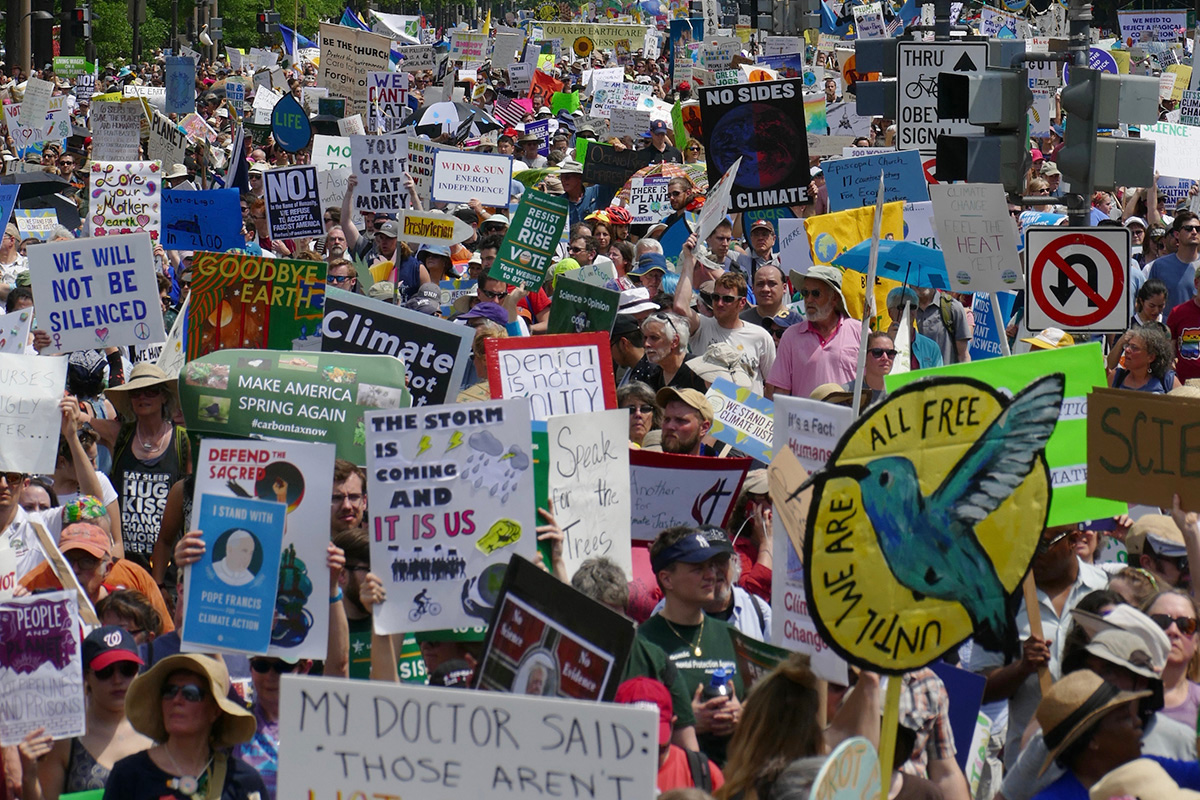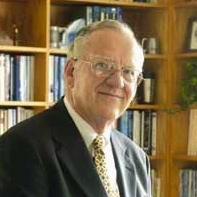By walking away from the 2015 Paris climate agreement, President Donald Trump ended the United States’ commitment to reduce carbon emissions and made good on a key campaign promise. But amidst the fallout from the move, Mr. Trump’s exit from the Paris accord had some unlikely opponents—namely, large industrial giants who, at first glance, would seem thrilled to no longer be required to reduce emissions.
The fact that environmentalists supported the agreement is no surprise. What’s often overlooked is that they were joined by a strong coalition of industrialists who saw it to be in their vital interest to support the global accord. Exxon Mobil and ConocoPhillips, two of the world’s biggest oil producers, both urged Trump to stay in the Paris agreement. They were joined by Microsoft, Apple, Nike, the German industrial giant Siemens, and its Swiss counterpart ABB, to name a few, who supported the accord.
Why would these industrialists call for the same carbon-reducing policies as environmentalists? After all, each firm can individually engage in pollution-reduction actions—as they often do—without imposing their behavior on everyone else. Why do they want global standards?
As always, there are multiple motivations at play. Microsoft and Apple, for example, are deeply engaged in software development for electric cars. Siemens and ABB are global providers of efficiency-improving electrical machinery, which they argue can reduce total energy consumption, operating costs, and carbon emissions. Getting a strong Paris nudge to the market for their favorite products could help the bottom line.
This unlikely coalition is evidence of yet another version of the age-old alliance between bootleggers and Baptists. The story goes like this: While the churchgoers normally wouldn’t deign to associate with moonshiners, the two groups share a common interest and political end. They both want to shut down liquor stores on Sunday. But they have very different reasons for doing so. Baptists provide moral support for the policy, while bootleggers receive bottom-line benefits. When combined, the two groups tend to form winning coalitions in a variety of contexts.
Consider how these forces play out in the climate-policy debate. Environmentalists play the role of the Baptists, who for moral reasons support Sunday closing laws. Today, instead of closing liquor stores, these environmental “Baptists” want to shut down carbon emitters. In recent years, environmentalists have supported restrictions that, assisted by market forces, have shuttered coal mines, closed or penalized power plants, limited fossil-fuel emissions, and regulated automobiles. Since the 1970s, the environmental Baptists have preferred central government command-and-control regulation and have often argued successfully against the use of decentralized common law, prices, and fees for accomplishing their goals. Command-and-control policies, of course, call for larger bureaucracies to design and enforce the rules and empower politicians who, in solemn support, deliver on environmental promises.
Why would industrialists call for the same carbon-reducing policies as environmentalists?
But another group, the opportunistic industrialists, also often prefer the same command-and-control approach as environmentalists. These environmental “bootleggers” are like the characters in the original story who love seeing the liquor stores—their economic rivals—closed on Sundays. Competition is eliminated for one day a week. These environmental bootleggers love command-and-control regulations that raise rivals’ costs and limit the entry of new competition. They welcome taxpayer subsidies and government-guaranteed loans for developing new solar cells, improved batteries, emission-free automobiles, and other forms of clean energy, and they perhaps smile at the prospect of cartelizing world markets with coordinated rules and higher prices that may result from global emission-reduction agreements that they help design.
With firm-specific government subsidies for the development of clean technologies and a seat at the regulators’ table, the environmental bootleggers, like their earlier counterparts, can laugh all the way to the bank. Meanwhile, millions of widely dispersed consumers of their products may each face slightly higher power bills from older energy sources while enjoying the benefits of zero-emission cars and improved solar systems. (It is also possible, of course, that new technologies can bring cleaner outcomes as well as lower-cost energy, offering benefits to consumers as well as comfort to those who worry about sustainability and the long-term well being of the planet.)
Both the bootleggers and the Baptists were rumbling as Mr. Trump was formulating his decision. General Electric, Tesla, Google, and Microsoft harmonized with the Sierra Club, Friends of the Earth, Natural Resources Defense Council, and Environmental Defense Fund. With one voice, they called out: “Do not abandon the Paris accord.” Leaders of the world’s major nations and emerging ones welcomed the Bootlegger-Baptist chorus. As the news of Mr. Trump’s decision spread, mayors of major U.S. cities and leaders of some state governments indicated their commitment to do their part to uphold the accord’s carbon-reduction efforts.
With such widespread support for the Paris accord from the classic Bootlegger-Baptist interest group duo, what then explains Mr. Trump’s move?
The Trump exit signaled that something had gone wrong as the environmental pilgrims were making their way to Paris. Harking back to the original Bootlegger-Baptist story, we must remember the operators of the closed liquor stores and the folks who enjoy a drink on Sunday—the people who bear the costs of the government’s policies. They were unorganized, widely dispersed, and, sometimes thought to be immoral. They were forgotten. In today’s setting, the forgotten ones are the coal miners, oil and gas well operators, and generators of coal-fired electricity, located in West Virginia, Kentucky, Pennsylvania, Ohio, Wyoming, and Montana. In some cases, they were thought to be less than moral, too. Now, they have been told that they will be forgotten no longer, that better times are in the offing.
Mr. Trump’s exit suggests that we might be observing the start of a new chapter in America’s environmental saga—a disturbance in how the Bootlegger-Baptist framework normally functions to support costly environmental regulations. But do not bet against the environmental coalition in the longer term. It is, after all, strong, well organized, and loaded with deep-pocket bootleggers. And remember, the market is the ultimate environmental regulator, and market forces seem to be calling for a cleaner world.




